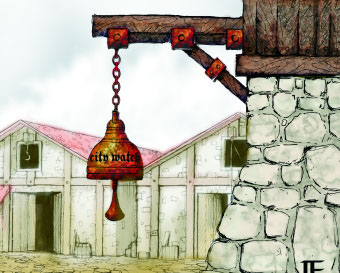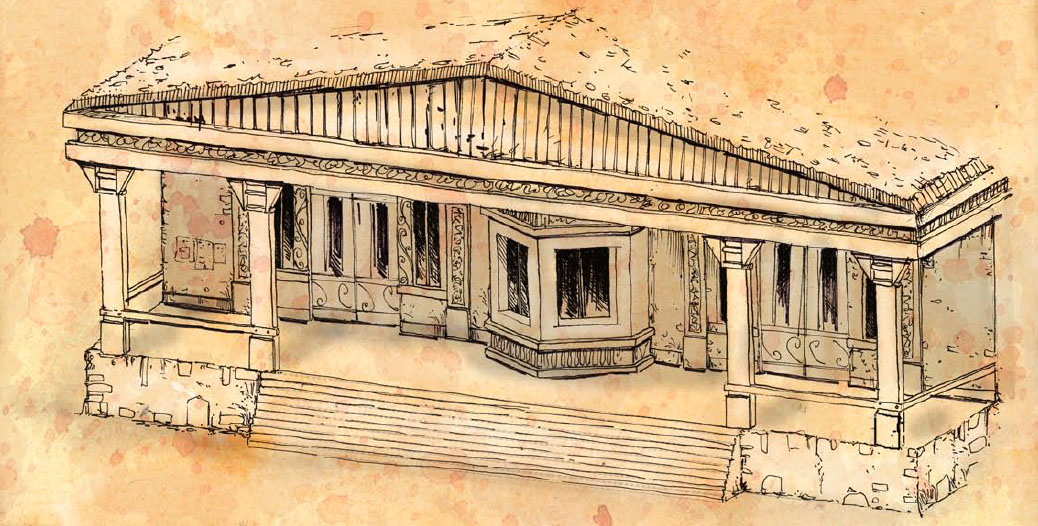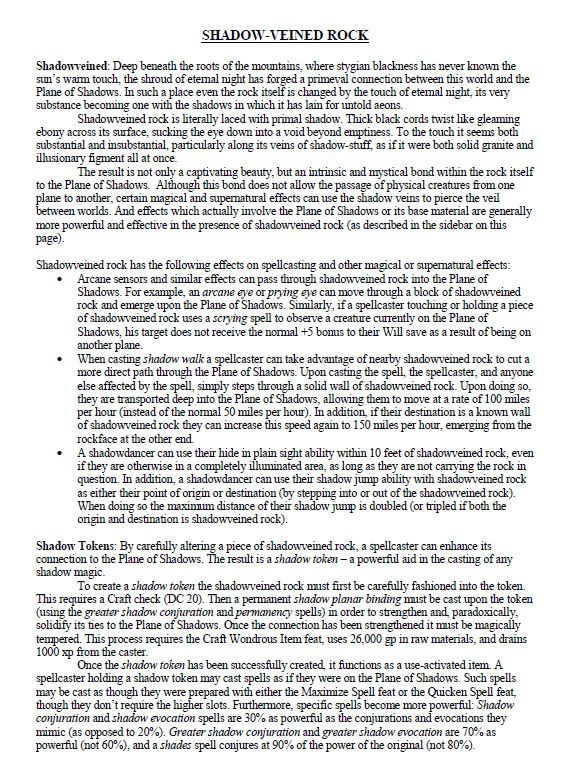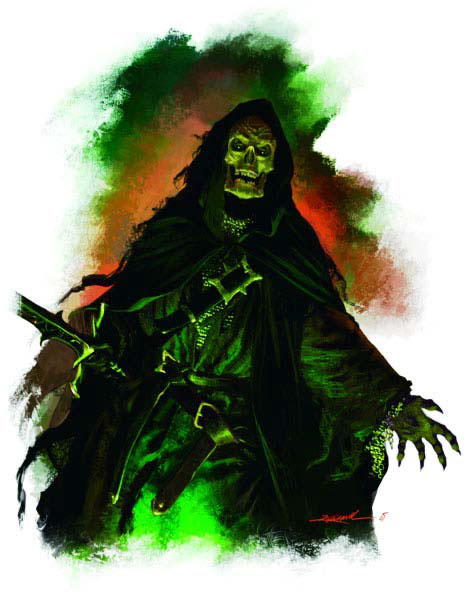THE BLOODY ORRERY
The next morning, at breakfast, Cardalian came over to their table. She received a rather frosty reception from all of them as she introduced herself to “their new friend”, Tor. She invited them to attend the funeral of Devaral Unissa at the Cathedral of Athor on the 1st of Kadal and then headed back to her own table.
They shrugged her off and headed back up towards the North Market and Greyson House.
There was still one mystery left in the outer area of the complex: The room with the orrery. Something in that room – or adjacent to that room – was inflicting them with the bloodsheen.
Ranthir had specifically prepared spells to get to the root of this mystery. Working his incantations he carefully circled through the room, trying to ignore the thin sheen of blood springing up across his body. “I am certain,” he said at last, “That one of bloodwights lies within the orrery. I think—“
At that moment, the glistening pink form of a fully regenerated bloodwight smashed its way through the wooden panels around the base of the orrery. Ranthir’s momentary outrage at seeing the ancient orrery damaged was quickly replaced by concern as he realized that the creature had effectively cut him off from the room’s exit… and the blood was pouring ever faster from his pores.
Tor and Agnarr rushed into the room, gladly braving the bloodsheen in order to come to their companion’s aid. Tee kept her distance, but drew her dragon pistol, carefully choosing her shots to blast hunks from the bloodwight’s undead flesh.
It was short and bloody work, but at last it was done. Agnarr grinned. “Well, I think that’s finally the last of them. So…”
Ranthir was lying unconscious in a pool of his own blood.
“Dominic!”
The priest came rushing in from the outer room. Fortunately, Ranthir – although faint from the shocking loss of blood – was not physically harmed. With the strength of Athor flowing into his flesh, the wizard and scholar was soon back on his feet.
His attention turned almost immediately to the orrery, which he had not previously been able to devote proper attention to. After years of neglect it was in very poor condition and utterly inoperable, but after careful study and the taking of many notes, Ranthir was able to reconstruct its basic principles.
He was intrigued to discover that the motions of the heavenly bodies it tracked were not accurate to a modern understanding – there were several minor inconsistencies reflective of a much older cosmological theory. But, even more fascinating, the orrery featured no less than seventeen heavenly bodies which were completely unknown to modern observation. What had the makers of the orrery been thinking? What did those bodies represent? Had they, in fact, existed at some point in the distant past?
Tee, meanwhile, was inspecting the orrery with a more practical eye. She confirmed that the bloodwight had, in fact, been resting within a secret compartment of sorts within the base of the orrery – it had probably once been used for maintenance. But she also discovered that the seventeen spheres representing the unknown heavenly bodies were not made of brass like the other spheres in the orrery, but were instead forged form pure silver and worth a small fortune (at least 425 gp).
Tee began looking for ways to break off these silver spheres, but then Ranthir raised the possibility that they might find a way of transporting the entire orrery to the surface and selling it intact. This seemed a daunting task – the orrery must have weighed at least 14,000 pounds – but Ranthir suspected it could be worth as much as 12,000 gp.
After much debate, it was decided that they would leave the orrery for now. Tee was skeptical that they could move it (even if they followed Ranthir’s suggestion of hiring workers to perform the necessary excavations) – there was, after all, the pit of chaos in the way. But there was also the possibility that Lord Zavere of Castle Shard would be interested in it – perhaps they could sell the mere knowledge of the orrery and allow the buyer to extract it for themselves.
With these thoughts in mind they moved through the deserted corridors that had been expurgated of the bloodwight plague and passed through the doors of bluesteel… (more…)

















